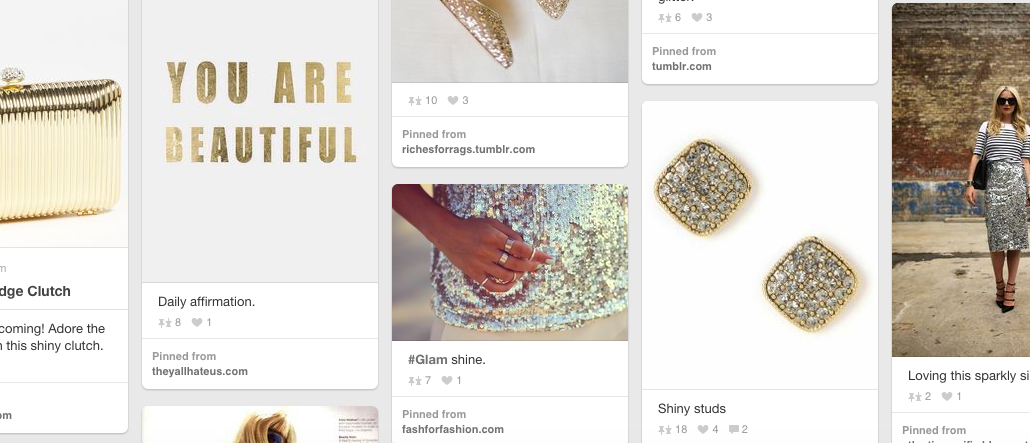Last chance to save on Digiday Publishing Summit passes is February 9

Global beauty company Elizabeth Arden is not buying what Pinterest is selling.
The company’s global directing marketing Denna Singleton told attendees at the Digiday Content Marketing Summit that the brand has found engagement on Pinterest to be the lowest among all its channels — and a few months ago, it quietly stopped posting to the platform entirely.
It’s surprising because Pinterest’s pitch has been aimed squarely at the female market: About 80 percent of its users are female, and according to one analysis, 90 percent of its pins are created by women.
For Arden, which started a Pinterest presence four years ago, the team was posting product images, pictures of models and some tips about creating beauty looks like “the perfect smokey eye.” The team looked at competitive brands like L’Oréal and found that everyone was doing the same thing.
It also dabbled in Promoted Pins, the Pinterest ad product which debuted this year that let brands advertise on the site on a CPM basis. “Our engagement was low,” said Singleton. The brand averaged a couple of repins per post, not exactly the kind of ROI Arden wants, considering the resources it takes to shoot original photos and manage the page.
“Many marketers just can’t seem to find success on Pinterest,” wrote Forrester analyst Nate Elliot in a recent report. Even a marketing behemoth like Coke has only 6,000 followers. One reason for the frustration is that Pinterest has very limited targeting (only a few dozen criteria) for its Promoted Pins. “The result of such limit targeting is unclear ad performance,” wrote Elliot.
For Arden, Instagram has been the better bet, where similar product shots to their pins get an average of 500 likes. “Pinterest doesn’t feel like it’s gaining traction,” compared to Instagram or Twitter, both of which have introduced new ad products like Carousel or Cards, said Singleton. “I’m curious to see what they’ll do going forward.”
See a video of Singleton’s panel at the Digiday Content Marketing Summit on Vimeo.
More in Marketing

In Q1, marketers pivot to spending backed by AI and measurement
Q1 budget shifts reflect marketers’ growing focus on data, AI, measurement and where branding actually pays off.

GLP-1 draws pharma advertisers to double down on the Super Bowl
Could this be the last year Novo Nordisk, Boehringer Ingelheim, Hims & Hers, Novartis, Ro, and Lilly all run spots during the Big Game?

How food and beverage giants like Ritz and Diageo are showing up for the Super Bowl this year
Food and beverage executives say a Super Bowl campaign sets the tone for the year.





